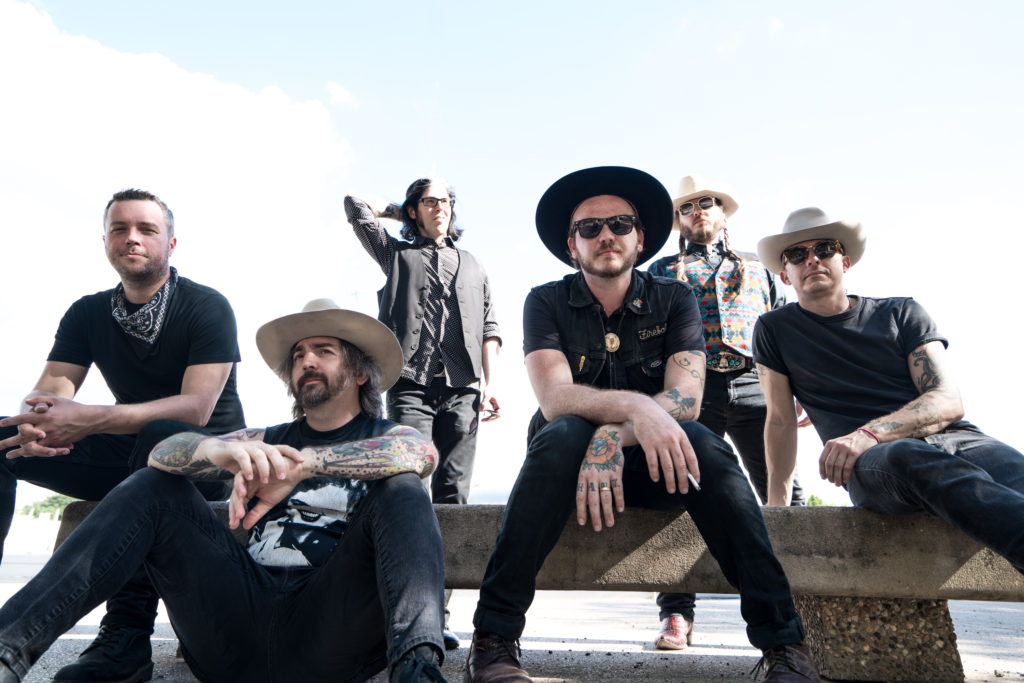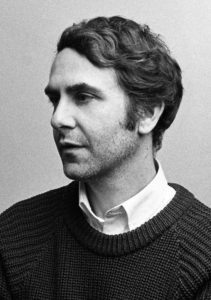
Given how personal the songs are, it makes perfect sense that Chris Cohen chose to self-title his third solo album. Having never imagined a day when he would be making music under his own name, never mind releasing records with his face front and center, the singer/songwriter has gone through a creative metamorphosis since 2016’s “As If Apart.” More open with himself and his audience, Cohen embraced what was happening in his life at the time – the good and the bad – and set out to write from his own specific point of view. The end result is an album that is truthful for both the artist and the listener, while pulling no punches in establishing the parameters of that emotional authenticity.
We recently sat down with Cohen to discuss making records of life, letting down his guard, and the surprising customer who bought a copy of his first solo album, “Overgrown Path.”
TrunkSpace: Your latest album is extremely personal. Does that make it more difficult releasing music to the masses when the who you’re singing about is you and the people you love?
Cohen: Yeah, I’m very careful to try and say only the things I’m sure about. My other records were personal too, but I tried to be more general/elliptical. I felt like not everyone was getting it, so this time I was more direct.
TrunkSpace: Your family is a focus of the album. Did you discuss with them that they’d be a part of your creative output in this kind of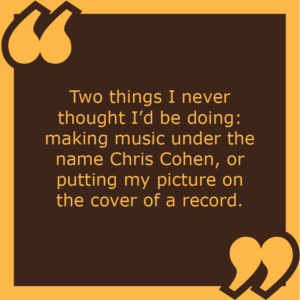 capacity, especially knowing that you’d be asked to reflect and impart on it all with folks like us?
capacity, especially knowing that you’d be asked to reflect and impart on it all with folks like us?
Cohen: I didn’t talk with anyone before I wrote the songs, but I did talk with some family members before I started doing press… My dad and I don’t speak anymore though, so I’m not sure what his response is. I was so careful in the past not to talk about my parents’ marriage or my dad’s substance abuse problems publicly. Ultimately I think that was a mistake – this time around I’m trying to be truthful but also to be fair, which is difficult. The alternative I think is to lie, so I’m not willing to do that. I think this sort of thing should be talked about, where possible, to raise awareness. You never know, someone might decide to make a change in their life and look for a reputable rehab center just from reading this. Being open and honest about things is important.
TrunkSpace: From what we understand, the album took two years. As you look back on the time spent bringing these songs to life, do you feel like this will become a specific chapter of your life? Do albums take on that yearbook feel when all is said and done?
Cohen: Oh yeah, definitely. That’s something I really like, making records of life.
TrunkSpace: What are you most proud of with the album?
Cohen: I’m proud of everything about it – though I’m sheepish about the cover photo. Still, I feel like it’s an appropriate image for the record.
Two things I never thought I’d be doing: making music under the name Chris Cohen, or putting my picture on the cover of a record.
TrunkSpace: This is your third solo album. Did you specifically set out to accomplish something with this collection of songs that you were unable to achieve with the first two? Was there a goal in mind that separated it, for you anyway, from what came before?
Cohen: Yes. I wanted to make simpler songs that spoke from my specific point of view and history in a way that was open and unguarded. I also wanted to record with other people at least a little bit, and I wanted to have some straight up solos (guitar and sax).
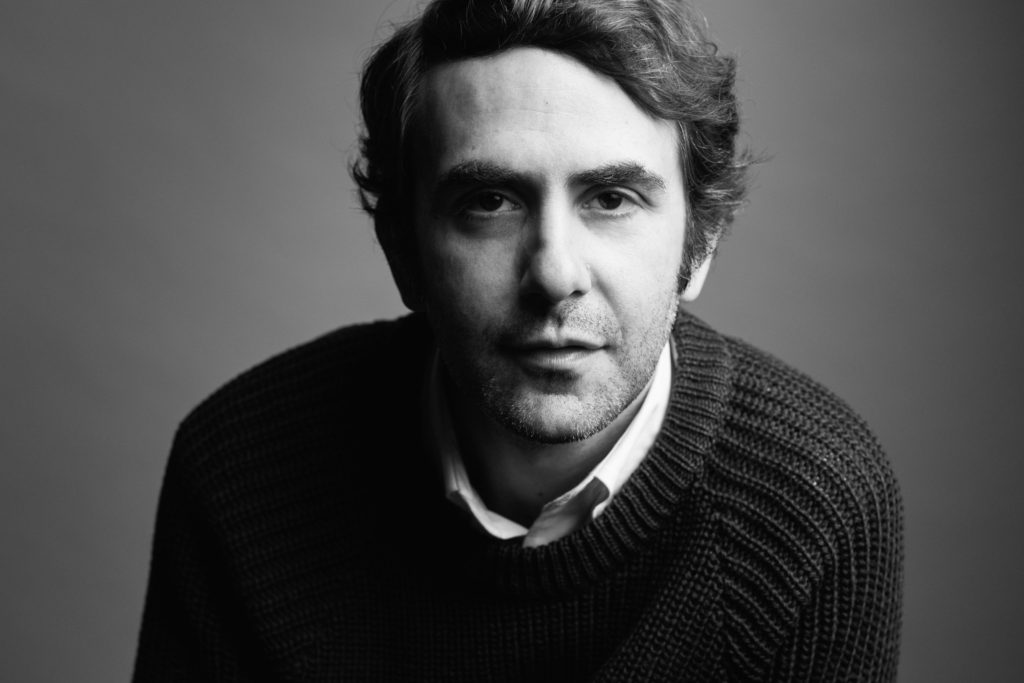
TrunkSpace: As a songwriter, can you be moved by creating a song just as much as you can be by listening to one by another artist? Can we (the listener) have a similar experience as you (the songwriter) with these songs or is it just, by its nature, different?
Cohen: Hmm – they’re pretty similar, I think. When I work on music, I listen as though someone else made it. Also when I’m listening to music I really love, I often have the feeling that somehow I’m playing it. That probably sounds weird but maybe it’s common with other musicians – imitation is a big part of music. When I’m listening, I’m either making the sounds in my mind or somehow becoming them, if that makes sense.
I don’t know if ‘moved’ is the right word but I feel a sense of forward motion writing songs. The process of writing goes on over many months so there isn’t like that one aha moment. But it’s a slow experience of being done with a certain idea. Maybe that’s the reverse of listening, I don’t know.
TrunkSpace: You’ve experienced the creative process both as a solo artist and as a member of a band. How do they differ for you? Is one more rewarding that the other?
Cohen: I love both and think they inform each other. I seem to be sad if I’m only doing one. So producing other people now is great for me and doing my own music.
 TrunkSpace: Are you more at home in the studio or on the stage, and if one feels more comfortable to you, why do you think that is?
TrunkSpace: Are you more at home in the studio or on the stage, and if one feels more comfortable to you, why do you think that is?
Cohen: Same answer – I love both. I wonder if I could I live without recording. I’ve never tried, though I have lived without performing, which wasn’t as satisfying. In my early/mid-twenties I barely performed but was recording a lot.
TrunkSpace: What has been the highlight of your career thus far?
Cohen: I think just connecting with other musicians, particularly ones I’ve admired. Seeing each record finished. I was pretty thrilled when I met Mark Mothersbaugh at a show in LA. I was opening for Parquet Courts and he was there. Devo was the first concert I ever saw and my favorite band as a kid (I saw them on the “Oh, N! It’s Devo” tour – 1983). He bought a copy of “Overgrown Path” and that was pretty wild for me.
TrunkSpace: Time machine question. If you could jump ahead 10 years and get a glimpse of what your career looks like a decade from now, would you take that journey? If not, why?
Cohen: I’m just glad I don’t really have to make that decision! Forget about my career – the world in 10 years is a disturbing thought right now, since humans are destroying themselves and most other life on the planet. I’m not sure if music or other things I love will survive in the world we’re creating.
Chris Cohen’s self-titled third solo album is available now on Captured Tracks.


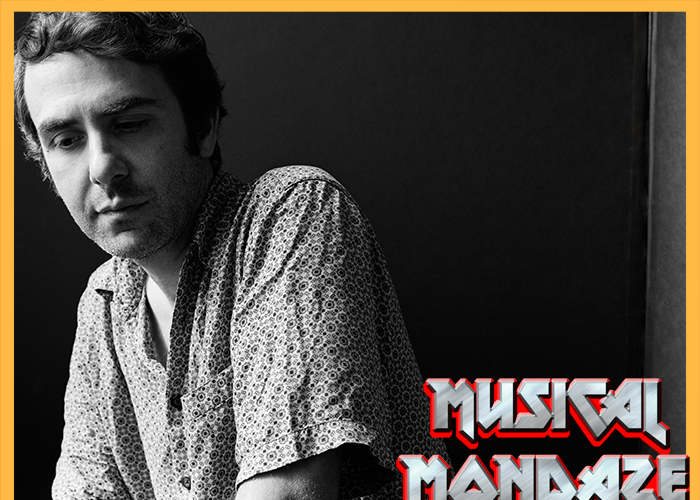
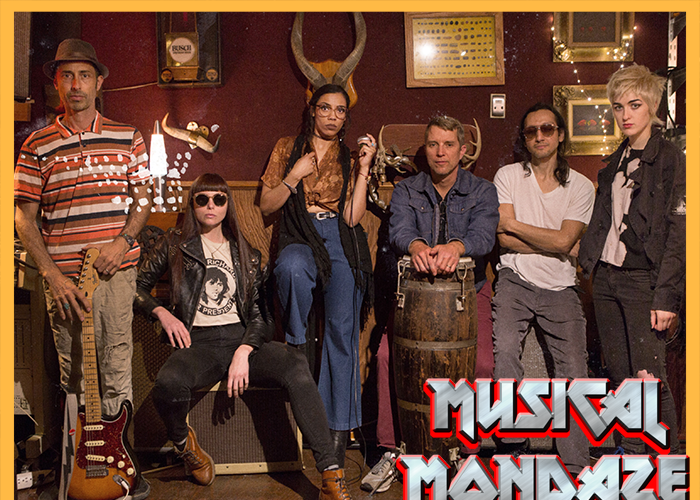
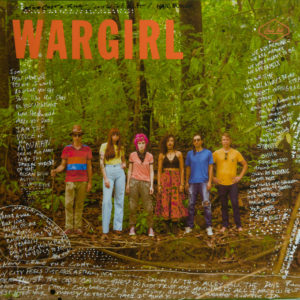 Being able to travel the world doing what she loves is a dream come true for Samantha Parks, lead singer of the genre-bending musical collective Wargirl. The Long Beach-born band’s self-titled debut, out now on Clouds Hill, is a refreshing assortment of its members’ diverse influences, which includes everything from classic rock to afrobeat, and like the frontwoman’s love for touring, it’s a dream come true for music fans.
Being able to travel the world doing what she loves is a dream come true for Samantha Parks, lead singer of the genre-bending musical collective Wargirl. The Long Beach-born band’s self-titled debut, out now on Clouds Hill, is a refreshing assortment of its members’ diverse influences, which includes everything from classic rock to afrobeat, and like the frontwoman’s love for touring, it’s a dream come true for music fans. jazz to punk to afrobeat, and the list goes on from there. We’re very open to learning from one another and I think the fact that we come from different backgrounds only lends more exploration and fun to our creative process. It’s nice to feel limitless. We aim away from restricting ourselves too much.
jazz to punk to afrobeat, and the list goes on from there. We’re very open to learning from one another and I think the fact that we come from different backgrounds only lends more exploration and fun to our creative process. It’s nice to feel limitless. We aim away from restricting ourselves too much.

 TrunkSpace Exclusive Premiere
TrunkSpace Exclusive Premiere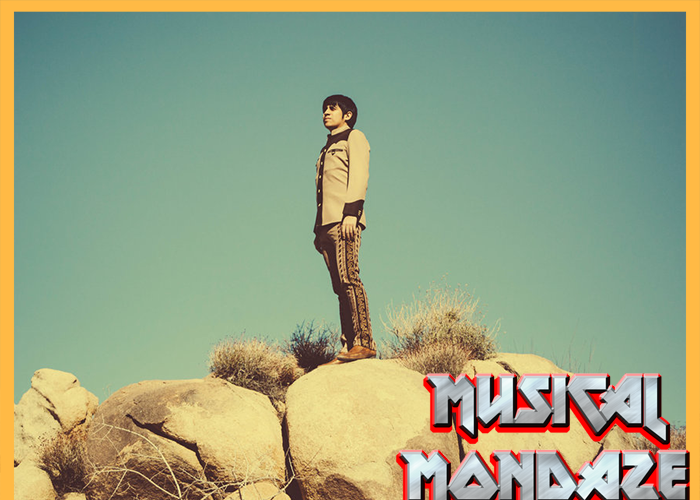

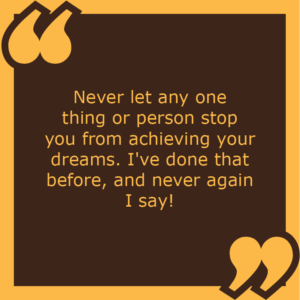
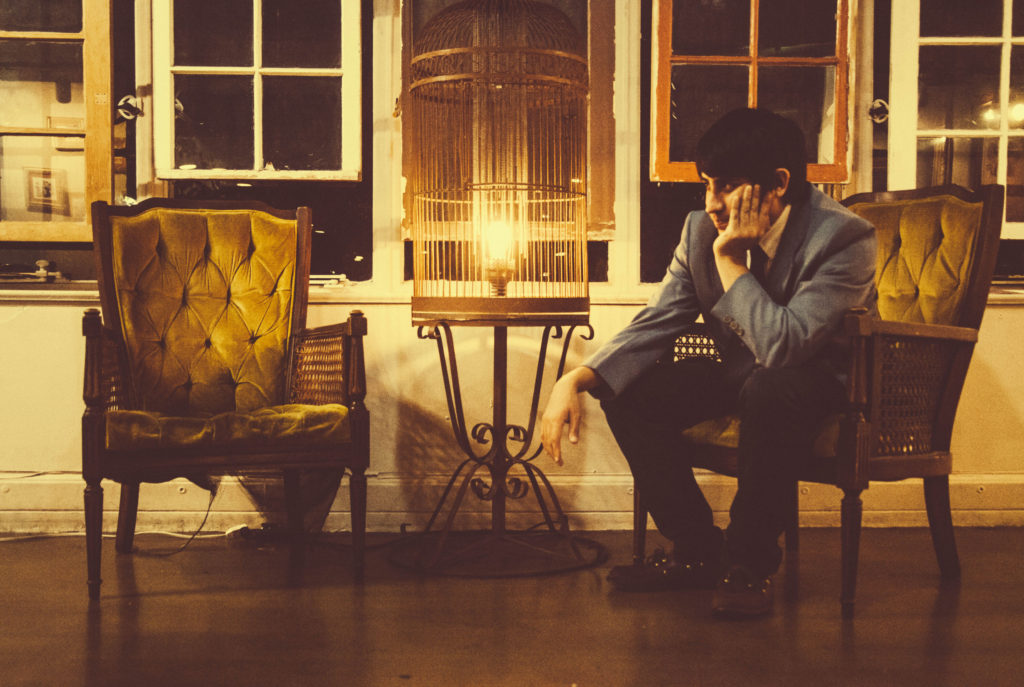

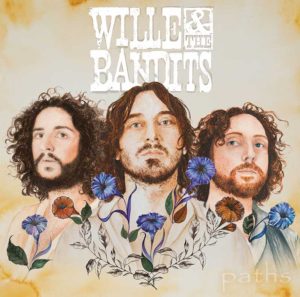 With their first States-based single recently released, popular UK rockers Wille & The Bandits are crossing the pond and expanding their music on a global scale. From performing at the Glatsonbury Festival to showcasing their musical talents at the London Olympics, the trio of undefinable genre hoppers have been wowing fans in their home country for nearly a decade, but now it’s time to take their rootsy vibe – and their new album “Paths” – to the United States, the country where much of their sonic influences originate from.
With their first States-based single recently released, popular UK rockers Wille & The Bandits are crossing the pond and expanding their music on a global scale. From performing at the Glatsonbury Festival to showcasing their musical talents at the London Olympics, the trio of undefinable genre hoppers have been wowing fans in their home country for nearly a decade, but now it’s time to take their rootsy vibe – and their new album “Paths” – to the United States, the country where much of their sonic influences originate from.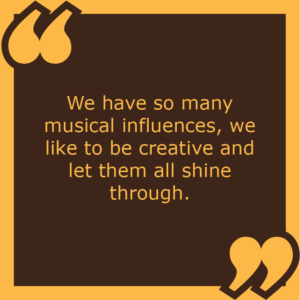 audiences in Europe. We hope that the album connects with people and that they turn out to the shows.
audiences in Europe. We hope that the album connects with people and that they turn out to the shows.
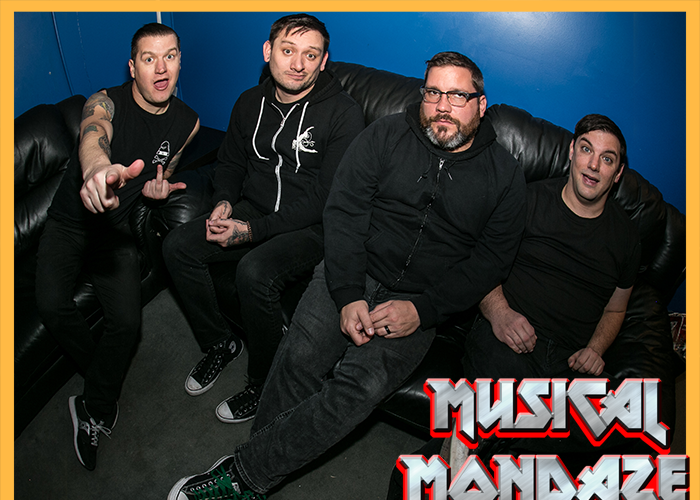
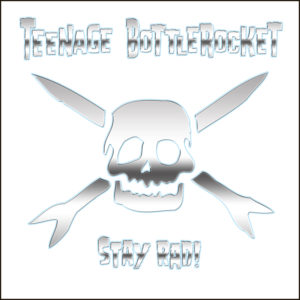
 played there 15 times, it’s always different. We do tend to eat at the same restaurants. When we play the Otto Bar in Baltimore in June, we will definitely go eat at Captain James, and when we play Boston, we always eat at Boston Market. Not kidding.
played there 15 times, it’s always different. We do tend to eat at the same restaurants. When we play the Otto Bar in Baltimore in June, we will definitely go eat at Captain James, and when we play Boston, we always eat at Boston Market. Not kidding.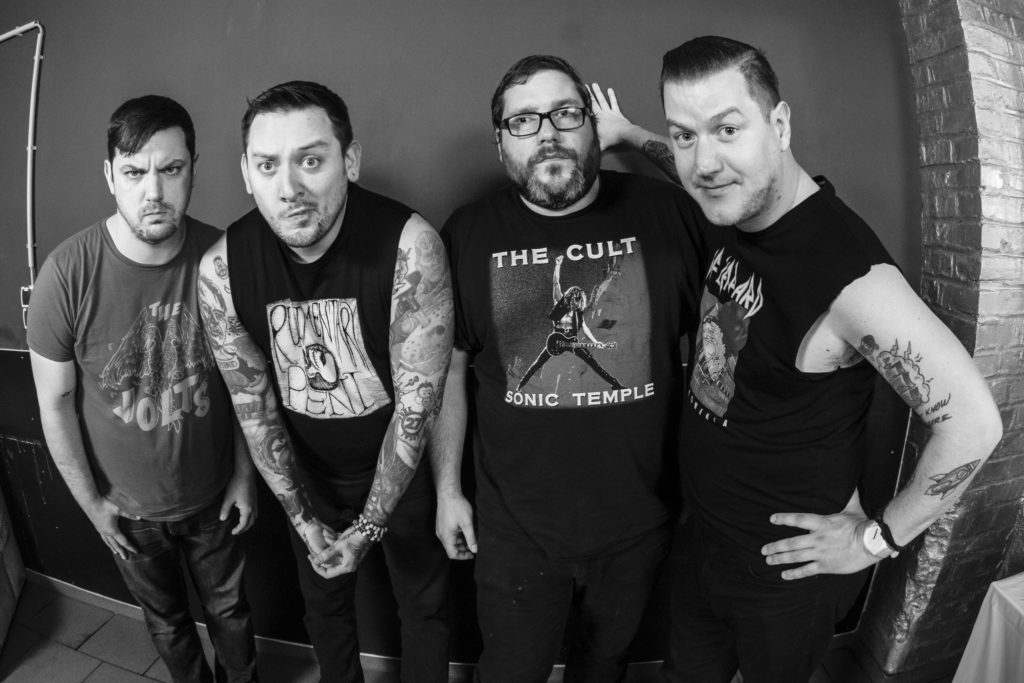
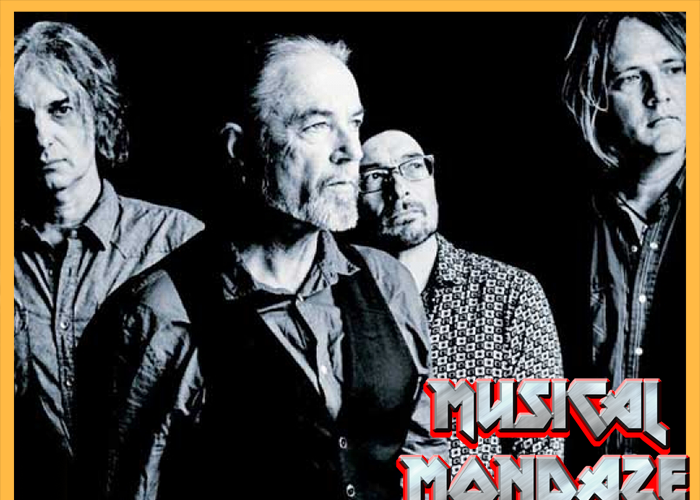
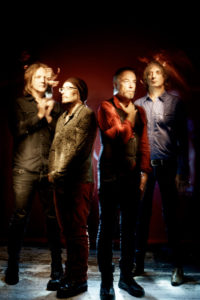 With a tour to mark the 30th anniversary of the “Starfish” album already underway, Australian alt-rockers The Church are returning to the States this spring to play the record live in its entirety, along with a selection of tracks spanning their 26-album musical journey to date.
With a tour to mark the 30th anniversary of the “Starfish” album already underway, Australian alt-rockers The Church are returning to the States this spring to play the record live in its entirety, along with a selection of tracks spanning their 26-album musical journey to date.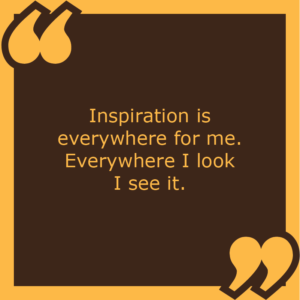 that kind of band.
that kind of band.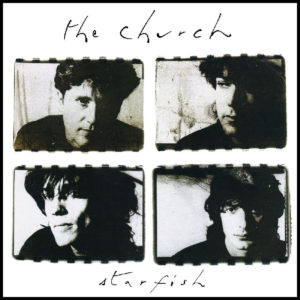 TrunkSpace: For you personally, what’s been the highlight of your career thus far?
TrunkSpace: For you personally, what’s been the highlight of your career thus far?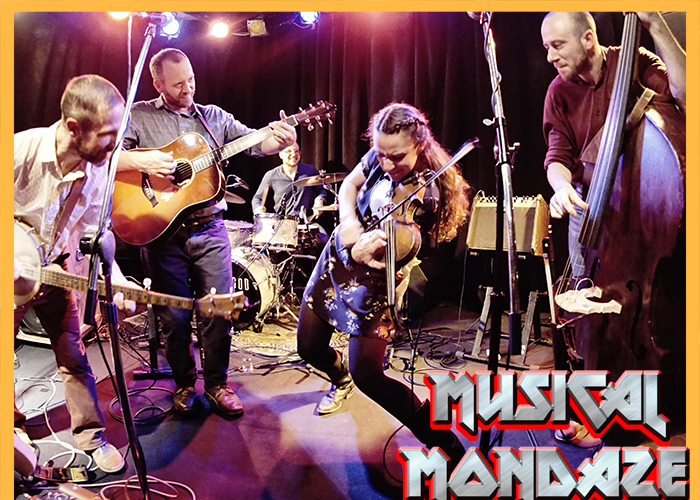
 With their new album “Tree Of Shade” set to be released on April 5, we’re catching up with TrunkSpace alumni Driftwood to discuss the various changes that have taken place within the band since we
With their new album “Tree Of Shade” set to be released on April 5, we’re catching up with TrunkSpace alumni Driftwood to discuss the various changes that have taken place within the band since we 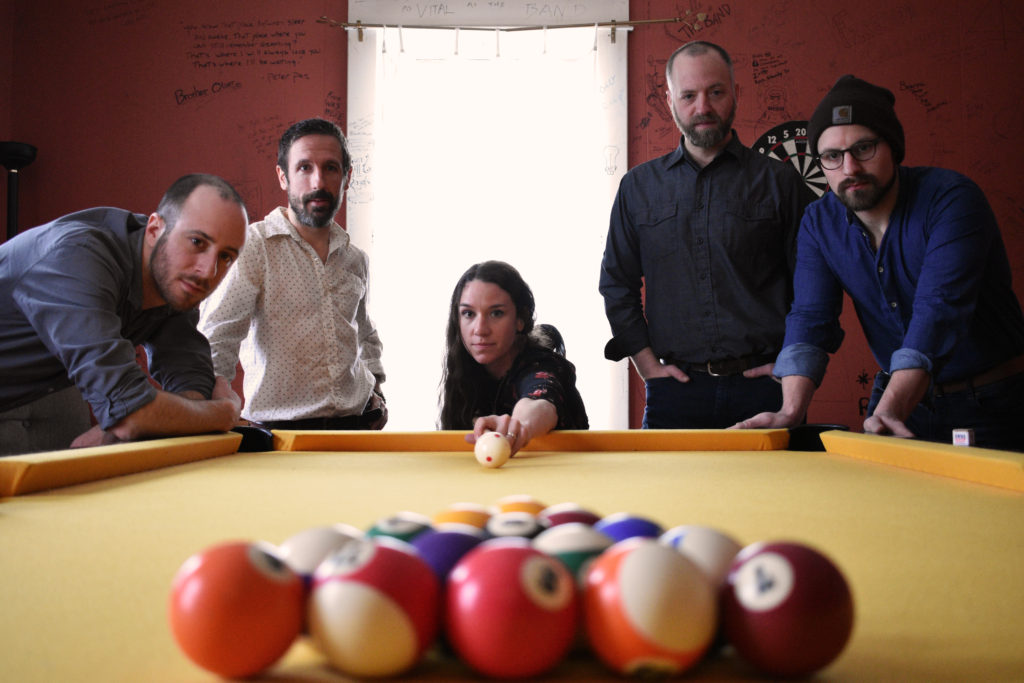
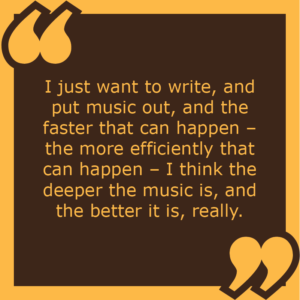 demos ended up being on the record, and we just sort of fleshed them out. Actually a handful of them. And then the efficiency in which we did it. We recorded the whole thing in 10 days, sort of the bones and the guts of the thing, and then just added a couple little things here and there. So, I’d say, it’s about a 12 day record, and that is unheard of. In Driftwood world it’s usually like a year process. That’s just how long it seems to take.
demos ended up being on the record, and we just sort of fleshed them out. Actually a handful of them. And then the efficiency in which we did it. We recorded the whole thing in 10 days, sort of the bones and the guts of the thing, and then just added a couple little things here and there. So, I’d say, it’s about a 12 day record, and that is unheard of. In Driftwood world it’s usually like a year process. That’s just how long it seems to take. 
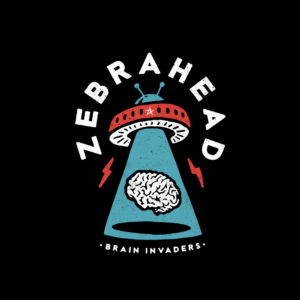 Just a week before dropping their creative baker’s dozen “Brain Invaders” on fans, Orange County’s zebrahead is also prepping for a spring tour that will take them to Australia, and while they’ve seen and experienced more than most of us could ever imagine in their over 20 years together, they are still finding new things to enjoy while out on the road.
Just a week before dropping their creative baker’s dozen “Brain Invaders” on fans, Orange County’s zebrahead is also prepping for a spring tour that will take them to Australia, and while they’ve seen and experienced more than most of us could ever imagine in their over 20 years together, they are still finding new things to enjoy while out on the road.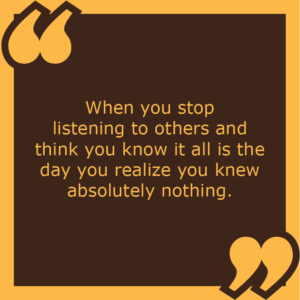 ago and said “let’s go for it” and we haven’t looked back. I just wanted to get to see the world and couldn’t believe it was happening. Now all these years later I still want to get to see the world and really can’t believe how lucky we are. It’s all amazing and humbling.
ago and said “let’s go for it” and we haven’t looked back. I just wanted to get to see the world and couldn’t believe it was happening. Now all these years later I still want to get to see the world and really can’t believe how lucky we are. It’s all amazing and humbling.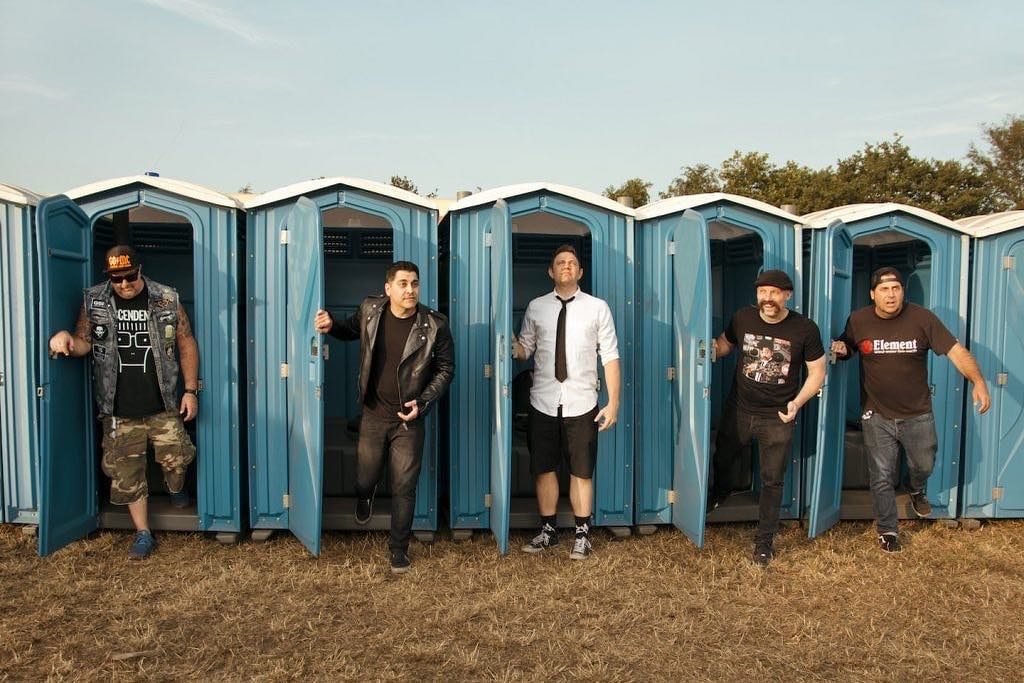
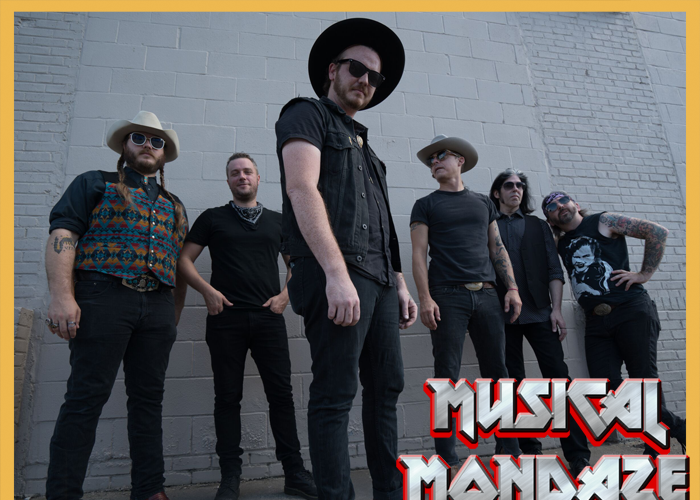
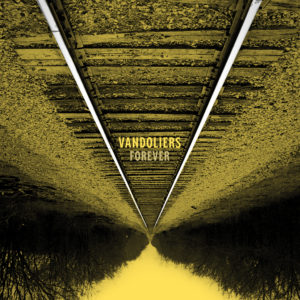
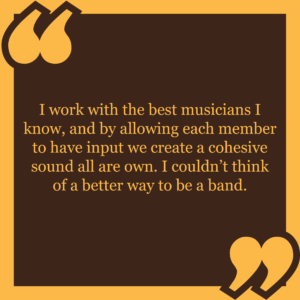 on a mountain tour to compose the fiddles and horn parts. We went away from the distractions of home and went to Memphis for a week to record. The biggest difference was recording in the same room as a band. I hope we will be lucky enough to repeat this process for our next album.
on a mountain tour to compose the fiddles and horn parts. We went away from the distractions of home and went to Memphis for a week to record. The biggest difference was recording in the same room as a band. I hope we will be lucky enough to repeat this process for our next album.